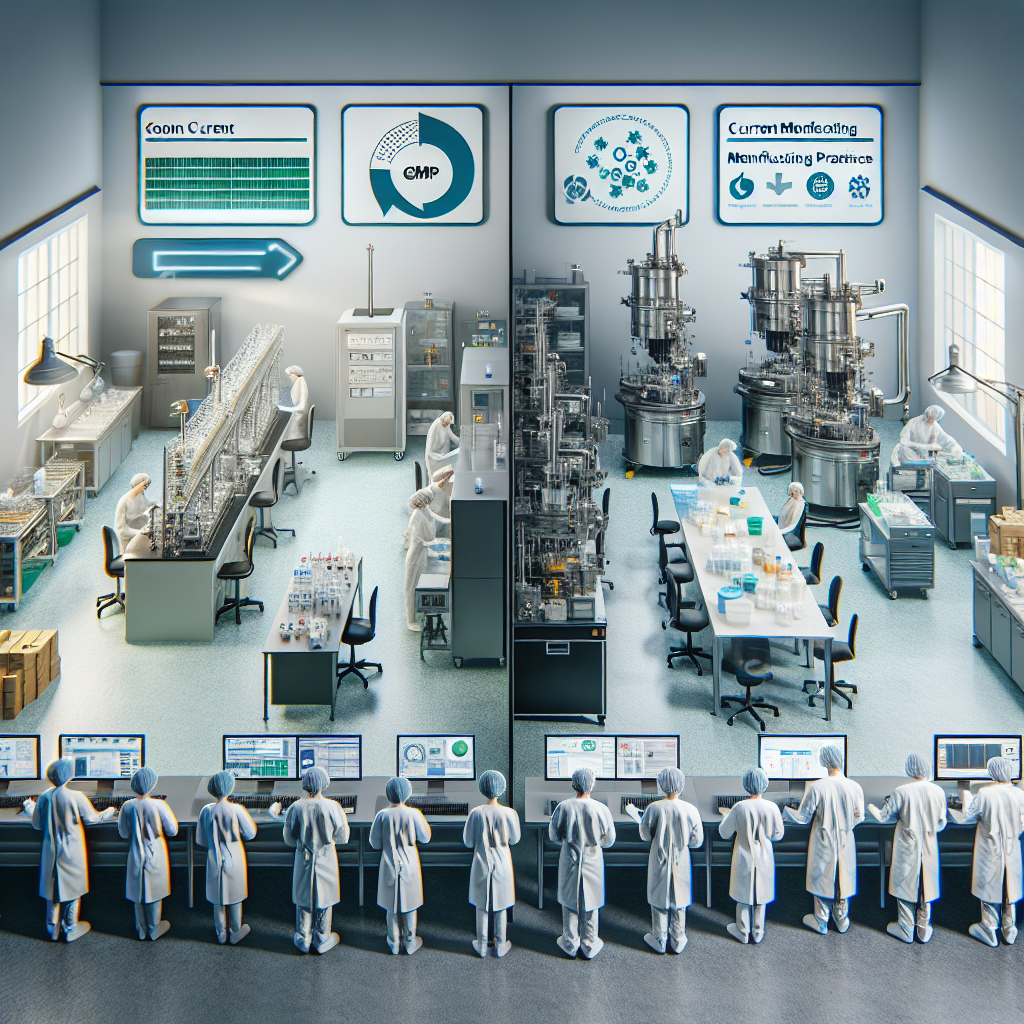In today’s competitive supplement industry, quality isn’t just a marketing buzzword—it’s the foundation of business survival. At the heart of quality assurance stands Good Manufacturing Practice (GMP) certification, a critical credential that signals to consumers, retailers, and regulators that your products meet rigorous quality standards. But this badge of honor comes with a significant price tag that many supplement entrepreneurs fail to fully calculate when launching their businesses.
GMP certification represents a comprehensive quality management system that covers every aspect of production—from raw material sourcing and equipment validation to personnel training and facility design. For supplement manufacturers, GMP compliance isn’t optional; it’s the baseline expectation for operating legitimately in the marketplace. These standards ensure that what’s on your supplement label matches what’s in the bottle, both in terms of identity and potency.
Let’s break down the real costs of GMP certification and explore why, despite the substantial investment, it remains one of the wisest business decisions a supplement company can make.
The Initial Investment: Understanding Upfront GMP Certification Costs
The journey toward GMP certification begins with significant upfront expenditures that vary widely based on your facility size, production complexity, and current quality systems. For small to medium-sized supplement businesses, initial certification costs typically range from $15,000 to $75,000—a substantial investment that can shock unprepared entrepreneurs.
These initial costs generally include:
- Facility upgrades: $5,000-$30,000 for physical modifications to meet GMP requirements such as segregated storage areas, air handling systems, and proper surface finishes
- Equipment qualification: $3,000-$15,000 for testing and documenting that production and testing equipment performs as intended
- Documentation development: $4,000-$10,000 for creating standard operating procedures (SOPs), master manufacturing records, and quality control protocols
- Pre-certification consulting: $5,000-$20,000 for expert guidance to identify and address compliance gaps
The variability in these costs largely depends on your starting point. If you’re converting an existing facility that wasn’t designed with GMP in mind, costs will trend toward the higher end. One supplement manufacturer in Arizona reported spending nearly $50,000 just on facility modifications to ensure proper material flow and contamination prevention.
“We had to completely redesign our production floor layout and install new ventilation systems to prevent cross-contamination between allergen-containing products and our standard line,” explains James Morrison, founder of a medium-sized supplement company. “The sticker shock was real, but there was simply no way around these investments if we wanted to operate legitimately.”
For businesses starting from scratch, the silver lining is the opportunity to design GMP compliance into your facility from day one, potentially reducing some retrofitting costs. However, this advantage is partially offset by the higher overall startup investment.
Beyond Certification: The Ongoing Costs of GMP Compliance
Obtaining GMP certification is only the beginning of your quality journey. Many supplement startups focus exclusively on the certification costs while underestimating the significant ongoing expenses required to maintain compliance. These recurring costs often exceed the initial certification investment over time.
The major ongoing GMP compliance expenses include:
- Annual audit fees: $5,000-$15,000 for required certification renewal audits
- Staff training: $1,000-$3,000 per employee annually for GMP education and job-specific training
- Quality control testing: $50,000-$200,000 annually for raw material testing, in-process checks, and finished product verification
- Documentation maintenance: $25,000-$60,000 annually for quality personnel to manage and update GMP documentation
- Equipment calibration and maintenance: $10,000-$30,000 annually to ensure accuracy and reliability
These figures can be particularly challenging for smaller supplement manufacturers who lack economies of scale. A supplement startup producing just 5-10 products might spend 15-20% of their operating budget on quality systems maintenance, compared to 5-10% for larger companies with established processes.
“The testing costs alone can be overwhelming,” notes Dr. Sarah Chen, a quality assurance director with 15 years in the supplement industry. “Every batch of raw materials requires identity testing. Every production run needs verification. For businesses working with dozens of ingredients, this quickly adds up to six-figure annual testing expenses.”
Personnel costs represent another significant ongoing investment. Most GMP-certified facilities require dedicated quality assurance staff, with annual salaries ranging from $60,000 for quality technicians to $120,000+ for experienced quality directors. Even small operations typically need at least one full-time quality professional to maintain compliance.
The Financial Upside: How GMP Certification Pays for Itself
Despite these substantial costs, GMP certification offers compelling long-term financial benefits that can transform these expenses into valuable investments. When properly implemented, GMP systems create operational efficiencies that reduce waste, prevent costly mistakes, and streamline production.
Consider these financial advantages:
Reduced rejection and rework rates: GMP-compliant manufacturers typically experience 50-70% fewer batch failures than non-certified facilities. For a medium-sized supplement company, this can translate to $50,000-$100,000 in annual savings on wasted materials and labor.
Lower recall risk: The average cost of a supplement recall exceeds $500,000 when accounting for product replacement, logistics, legal exposure, and brand damage. GMP certification dramatically reduces recall probability through systematic quality controls.
Improved production efficiency: Standardized procedures and thorough training result in 15-25% higher production efficiency in GMP facilities compared to non-certified operations.
“We initially viewed GMP as a pure compliance cost,” shares Michael Donovan, CEO of a sports nutrition company. “Two years in, we realized our batch rejection rate had dropped from nearly 8% to under 2%. That improvement alone covered our annual GMP maintenance costs.”
For supplement companies navigating narrow profit margins, these efficiency gains can make the difference between struggling and thriving. The systematic approach required by GMP certification eliminates much of the variability and unpredictability that plague non-certified operations.
Market Advantages: The Competitive Edge of GMP Certification
Beyond operational benefits, GMP certification delivers substantial market advantages that directly impact revenue potential. As consumers become increasingly educated about supplement quality, GMP certification serves as a powerful differentiator in a crowded marketplace.
These market advantages include:
Retailer preference: Major retailers increasingly require GMP certification as a prerequisite for shelf space. Whole Foods, Vitamin Shoppe, and other quality-focused retailers prioritize GMP-certified products in their selection process.
Consumer trust: According to a 2022 industry survey, 73% of regular supplement users reported “manufacturing quality” as “very important” in their purchasing decisions, up from 58% five years ago.
Higher price points: GMP-certified supplements command premium pricing, with certified products averaging 15-30% higher retail prices than non-certified alternatives.
International market access: Many international markets, including the EU, Canada, and Australia, effectively require GMP certification for import authorization.
These advantages create a compelling business case for GMP certification beyond mere regulatory compliance. A supplement company investing $50,000 in initial certification costs might recoup this investment through expanded retail distribution within 12-18 months.
“GMP certification opened doors that were previously closed to us,” explains Lisa Fernandez, founder of a women’s health supplement line. “We went from struggling to get meetings with regional retailers to being approached by national chains. The certification essentially served as our credibility passport.”
For smaller supplement companies, GMP certification can level the playing field against larger competitors by establishing equivalent quality credentials. This quality parity allows boutique manufacturers to compete on unique formulations and specialized expertise rather than production scale.
Regulatory Protection: The Cost of Non-Compliance
When calculating GMP certification costs, manufacturers must also consider the potentially devastating financial impact of non-compliance. The FDA has dramatically increased enforcement actions against supplement companies in recent years, with particular focus on GMP violations.
The costs of regulatory non-compliance include:
FDA Warning Letters: While not carrying direct financial penalties, these public notices severely damage brand reputation and often trigger retailer de-listing.
Product seizures: The FDA can physically remove non-compliant products from the marketplace, resulting in complete inventory loss.
Mandatory recalls: Forced recalls under FDA supervision typically cost 4-5 times more than voluntary recalls due to tight timelines and agency oversight requirements.
Injunctions: Court orders can halt all production until violations are corrected, often requiring third-party certification of remediation.
Financial penalties: Recent FDA enforcement actions have included penalties ranging from $100,000 to several million dollars for severe GMP violations.
“Operating without proper GMP systems isn’t just cutting corners—it’s playing Russian roulette with your business,” warns regulatory attorney Jonathan Grimes. “I’ve seen companies invest $30,000 fighting an FDA action that could have been prevented with a $5,000 quality system improvement.”
This regulatory risk creates an additional financial incentive for GMP certification. The investment in compliance serves as insurance against potentially business-ending enforcement actions.
The Strategic Investment: Why GMP Certification Is Essential for Long-term Success
When viewed holistically, GMP certification represents far more than a regulatory checkbox—it’s a fundamental business investment that influences nearly every aspect of supplement operations. The strategic value extends well beyond avoiding penalties and includes creating systems that support sustainable growth.
For new supplement companies, approaching GMP certification as a phased investment can make the costs more manageable:
- Pre-launch planning: Design facilities and processes with GMP requirements in mind from the beginning
- Initial compliance: Focus on meeting core GMP requirements before expanding product lines
- System optimization: Continuously refine quality systems to improve efficiency while maintaining compliance
- Certification expansion: Consider additional certifications like NSF or UL as market positioning evolves
“The most successful supplement companies I work with view GMP not as a burden but as their operational foundation,” observes quality consultant Maria Rodriguez. “They build their business processes around GMP principles and find that quality becomes a competitive advantage rather than a cost center.”
At NutraAeon, we’ve witnessed this transformation repeatedly among our supplement manufacturing partners. Those who embrace GMP as a core business philosophy consistently outperform those who treat it as a regulatory obligation. The transparency and quality assurance inherent in GMP systems align perfectly with our own commitment to providing premium nutritional ingredients backed by complete documentation and rigorous testing.
Conclusion: The True Value Proposition of GMP Certification
While the costs of GMP certification are substantial—both initially and ongoing—the alternative isn’t viable for serious supplement businesses with long-term ambitions. The investment in GMP certification delivers a multi-dimensional return through operational improvements, market advantages, regulatory protection, and sustainable growth potential.
For supplement entrepreneurs calculating these costs, the key question isn’t whether you can afford GMP certification, but whether you can afford to operate without it. In today’s quality-focused marketplace, GMP certification isn’t just a cost of doing business—it’s the foundation upon which successful supplement companies build their brands, their customer relationships, and their future growth.
By embracing GMP certification as a strategic investment rather than a regulatory burden, supplement manufacturers position themselves for success in an increasingly competitive and scrutinized industry. The path to certification may be expensive and challenging, but it leads to a business built on quality, transparency, and consumer trust—the true currencies of long-term success in the supplement world.


